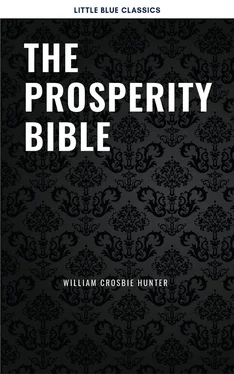"Flow would have done," suggested Mr. Lonimer.
"Flow's but a handful," said Tommy.
"Curran, then, you jackanapes!"
"Curran's no enough."
Mr. Lorrimer flung up his hands in despair.
"I wanted something between curran and mask," said Tommy, doggedly, yet almost at the crying.
Mr. Ogilvy, who had been hiding his admiration with difficulty, spread a net for him. "You said you wanted a word that meant middling full. Well, why did you not say middling full—or fell mask?"
"Yes, why not?" demanded the ministers, unconsciously caught in the net.
"I wanted one word," replied Tommy, unconsciously avoiding it.
"You jewel!" muttered Mr. Ogilvy under his breath, but Mr. Cathro would have banged the boy's head had not the ministers interfered.
"It is so easy, too, to find the right word," said Mr. Gloag.
"It's no; it's difficult as to hit a squirrel," cried Tommy, and again Mr. Ogilvy nodded approval.
And then an odd thing happened. As they were preparing to leave the school [Cathro having previously run Tommy out by the neck], the door opened a little and there appeared in the aperture the face of Tommy, tear-stained but excited. "I ken the word now," he cried, "it came to me a' at once; it is hantle!"
QUESTIONS AND EXERCISES
1. What is the derivation of the word vocabulary ?
2. Briefly discuss any complete speech given in this volume, with reference to ( a ) exactness, ( b ) variety, and ( c ) charm, in the use of words.
3. Give original examples of the kinds of word-studies referred to on pages 337 and 338.
4. Deliver a short talk on any subject, using at least five words which have not been previously in your "dynamic" vocabulary.
5. Make a list of the unfamiliar words found in any address you may select.
6. Deliver a short extemporaneous speech giving your opinions on the merits and demerits of the use of unusual words in public speaking.
7. Try to find an example of the over-use of unusual words in a speech.
8. Have you used reference books in word studies? If so, state with what result.
9. Find as many synonyms and antonyms as possible for each of the following words: Excess, Rare, Severe, Beautiful, Clear, Happy, Difference, Care, Skillful, Involve, Enmity, Profit, Absurd, Evident, Faint, Friendly, Harmony, Hatred, Honest, Inherent.
Lulled in the countless chambers of the brain,
Our thoughts are linked by many a hidden chain;
Awake but one, and lo! what myriads rise!
Each stamps its image as the other flies!
Hail, memory, hail! in thy exhaustless mine
From age to age unnumber'd treasures shine!
Thought and her shadowy brood thy call obey,
And Place and Time are subject to thy sway!
—Samuel Rogers,
Pleasures of Memory .
Many an orator, like Thackeray, has made the best part of his speech to himself—on the way home from the lecture hall. Presence of mind—it remained for Mark Twain to observe—is greatly promoted by absence of body. A hole in the memory is no less a common complaint than a distressing one.
Henry Ward Beecher was able to deliver one of the world's greatest addresses at Liverpool because of his excellent memory. In speaking of the occasion Mr. Beecher said that all the events, arguments and appeals that he had ever heard or read or written seemed to pass before his mind as oratorical weapons, and standing there he had but to reach forth his hand and "seize the weapons as they went smoking by." Ben Jonson could repeat all he had written. Scaliger memorized the Iliad in three weeks. Locke says: "Without memory, man is a perpetual infant." Quintilian and Aristotle regarded it as a measure of genius.
Now all this is very good. We all agree that a reliable memory is an invaluable possession for the speaker. We never dissent for a moment when we are solemnly told that his memory should be a storehouse from which at pleasure he can draw facts, fancies, and illustrations. But can the memory be trained to act as the warder for all the truths that we have gained from thinking, reading, and experience? And if so, how? Let us see.
Twenty years ago a poor immigrant boy, employed as a dish washer in New York, wandered into the Cooper Union and began to read a copy of Henry George's "Progress and Poverty." His passion for knowledge was awakened, and he became a habitual reader. But he found that he was not able to remember what he read, so he began to train his naturally poor memory until he became the world's greatest memory expert. This man was the late Mr. Felix Berol. Mr. Berol could tell the population of any town in the world, of more than five thousand inhabitants. He could recall the names of forty strangers who had just been introduced to him and was able to tell which had been presented third, eighth, seventeenth, or in any order. He knew the date of every important event in history, and could not only recall an endless array of facts but could correlate them perfectly.
To what extent Mr. Berol's remarkable memory was natural and required only attention, for its development, seems impossible to determine with exactness, but the evidence clearly indicates that, however useless were many of his memory feats, a highly retentive memory was developed where before only "a good forgettery" existed.
The freak memory is not worth striving for, but a good working memory decidedly is. Your power as a speaker will depend to a large extent upon your ability to retain impressions and call them forth when occasion demands, and that sort of memory is like muscle—it responds to training.
What Not to Do
It is sheer misdirected effort to begin to memorize by learning words by rote, for that is beginning to build a pyramid at the apex. For years our schools were cursed by this vicious system—vicious not only because it is inefficient but for the more important reason that it hurts the mind. True, some minds are natively endowed with a wonderful facility in remembering strings of words, facts, and figures, but such are rarely good reasoning minds; the normal person must belabor and force the memory to acquire in this artificial way.
Again, it is hurtful to force the memory in hours of physical weakness or mental weariness. Health is the basis of the best mental action and the operation of memory is no exception.
Finally, do not become a slave to a system. Knowledge of a few simple facts of mind and memory will set you to work at the right end of the operation. Use these principles , whether included in a system or not, but do not bind yourself to a method that tends to lay more stress on the way to remember than on the development of memory itself. It is nothing short of ridiculous to memorize ten words in order to remember one fact.
The Natural Laws of Memory
Concentrated attention at the time when you wish to store the mind is the first step in memorizing—and the most important one by far. You forgot the fourth of the list of articles your wife asked you to bring home chiefly because you allowed your attention to waver for an instant when she was telling you. Attention may not be concentrated attention. When a siphon is charged with gas it is sufficiently filled with the carbonic acid vapor to make its influence felt; a mind charged with an idea is charged to a degree sufficient to hold it. Too much charging will make the siphon burst; too much attention to trifles leads to insanity. Adequate attention, then, is the fundamental secret of remembering.
Generally we do not give a fact adequate attention when it does not seem important. Almost everyone has seen how the seeds in an apple point, and has memorized the date of Washington's death. Most of us have—perhaps wisely—forgotten both. The little nick in the bark of a tree is healed over and obliterated in a season, but the gashes in the trees around Gettysburg are still apparent after fifty years. Impressions that are gathered lightly are soon obliterated. Only deep impressions can be recalled at will. Henry Ward Beecher said: "One intense hour will do more than dreamy years." To memorize ideas and words, concentrate on them until they are fixed firmly and deeply in your mind and accord to them their true importance. Listen with the mind and you will remember.
Читать дальше












